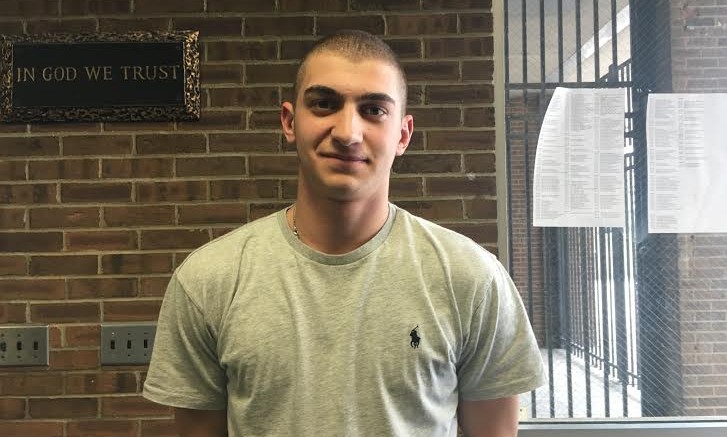Senior John Spoto is typically recognized for his outstanding abilities as a varsity athlete, but many are unaware of Spoto’s commitment to aiding the community as a volunteer firefighter. The Westword sat down with John to talk with him about what it means to be a volunteer firefighter in Stamford.
The Westword: When you were younger, what did you want to be when you grew up?
John Spoto: I had always wanted to be a baseball player, because it’s every little kids dream to play your favorite sport full time. But when I was around 12 years old I started to consider firefighting as something I may want to pursue.
TW: What sparked your interest in becoming a firefighter?
JS: I had watched several family members and friends go through the Fire Academy, so it was always on my mind. But about two years ago my neighbor’s house burned down, and that whole experience really changed my perspective on everything. I realized I wanted to be someone who helped out in situations like that.
TW: Where do you currently volunteer?
JS: I’m a part of the Long Ridge Fire Company. We have two stations, one on High Ridge and another on Long Ridge.
TW: Did you choose to volunteer with the Long Ridge Fire Company for any specific reason?
JS: You actually don’t have much say over where you get to volunteer. Those who are interested in firefighting are districted to stations based on where they live.
TW: Are there different jobs or titles for those who choose to volunteer?
JS: Definitely. You can be a volunteer driver or chief. My position is just referred to as a volunteer firefighter.
TW: What is the process of becoming a volunteer like?
JS: You have to get an application from the department and fill it out. Once they’re aware of your interest, you’ll be invited to attend one of the company’s monthly meetings to get a feeling for what the responsibilities of a volunteer are. At the following monthly meeting, all the company members will sit down and vote on whether or not you’ll be admitted into the company.
TW: How many hours a week do you work at the station?
JS: My hours change pretty regularly, but I typically volunteer for 5-7 hours a week. Monday nights are our drill nights, which are three hours alone.
TW: What do drill nights consist of?
JS: We usually use that time to practice water supply drills, stretch out the hose lines, and just become more familiar with our gear.
TW: Do you plan on making the transition from volunteer to full-time firefighter in the future?
JS: I do. I’ll do my four years at Southern Connecticut State University playing baseball, and then go through the Fire Academy.
TW: What do you enjoy most about volunteering at the station?
JS: I love being able to help my community, and it’s also a great way to gain experience in the field. It’s a good way to test whether or not I could really see myself as a firefighter for the better half of my professional career.
TW: What has been the most challenging aspect of your job?
JS: It would probably be seeing some of the trauma that most first responders face. Our department goes on both fire and rescue calls, so you can never have any expectations of what will happen. It can definitely be tough, but it’s a part of being a volunteer.
TW: Is it difficult to balance schoolwork and extracurricular activities with firefighting?
JS: It is and it’s not. I want to be there as much as I can, but sometimes I’ll have homework or baseball. But there’s not a set amount of hours you have to work in a week, so it’s not like you have to stress about putting your time in. You do as much as you can, so if anything it’s difficult for me because I want to be there more often than I can afford.
TW: What’s one misconception people have about firefighting that you’d like to dispel?
JS: Probably that we aren’t doing anything productive when we’re not on call. A lot of people think we’re just sitting at the station watching TV and killing time. But really, there’s always something going on. When we’re not on call, we’re cleaning up gear, washing the trucks, or training.
TW: What’s one piece of advice you’d give to someone who wants to pursue a career in a field as physically and mentally demanding as firefighting?
JS: Always be prepared for anything. You can never anticipate where you’re going to be called next, and under what circumstances. You could be doing a fairly easy walk through of a home after a false alarm on one call, and saving someone’s life on another. There aren’t as many fires as you’d think, but you can’t treat any call as a false alarm.





